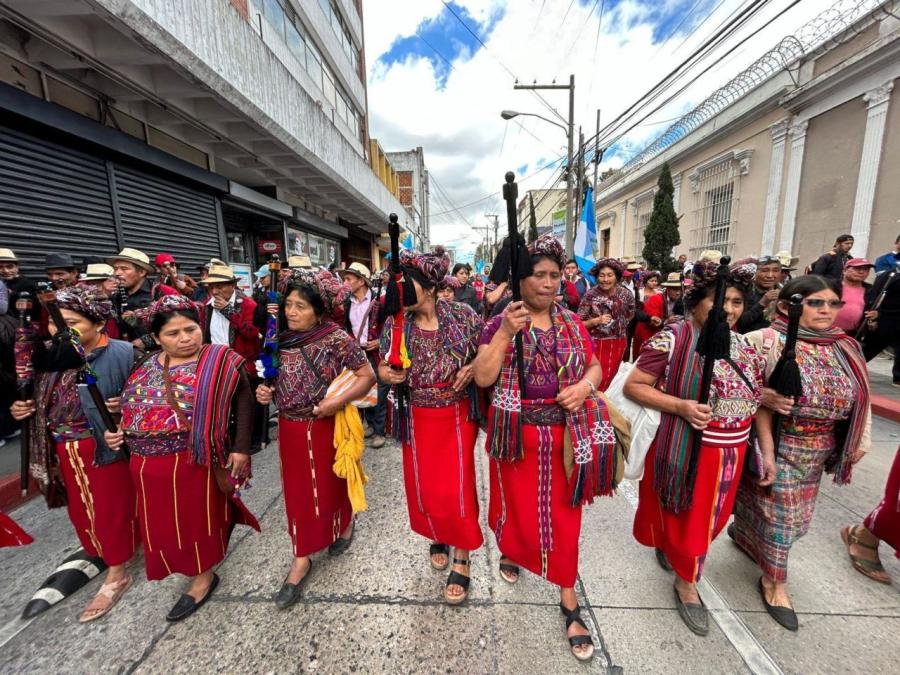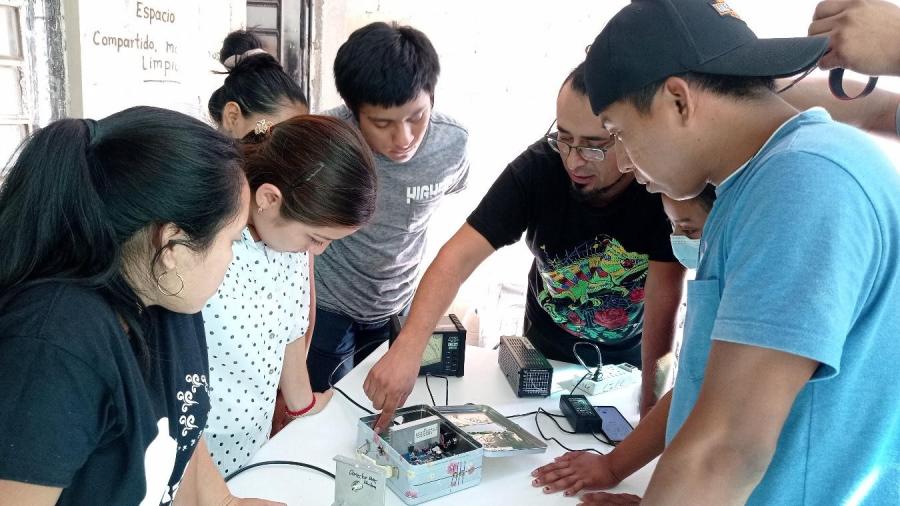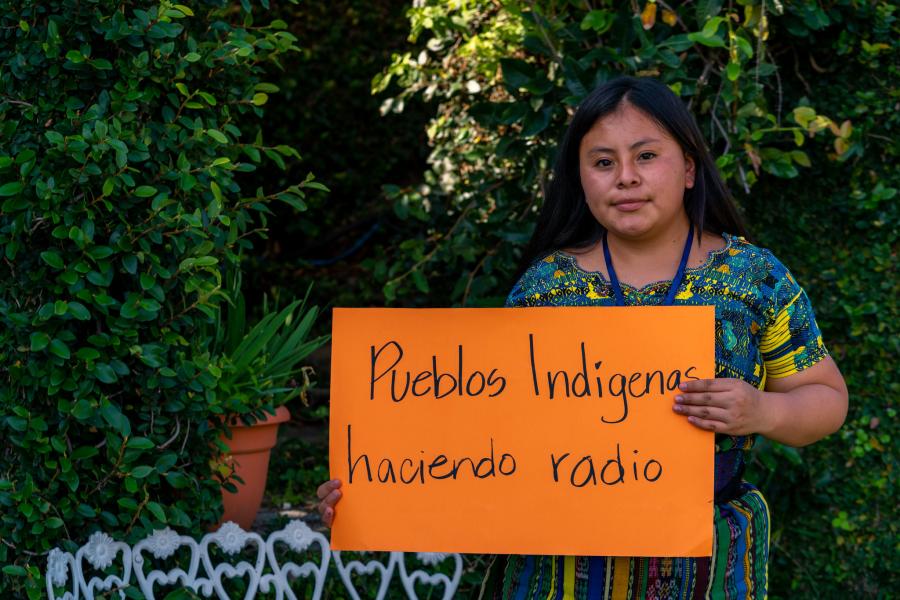Last week the community radio movement won a partial victory in the fight for democratic access to radio frequencies in Guatemala, with the congress's failure to vote approval on the bill 4404, which would have extended the current radio frequencies allocated to the mass media for another 25 years.
By rejecting the bill in it's first round of debate, the bill will be delayed until it can be re-entered in the next calendar year when the newly-elected Congress takes office.
The community radio movement publicly denounced bill 4404, as it disregards Indigenous Peoples' right to access media and is celebrating this measured victory. "The news comes as such a relief," explained movement leader Alberto Recinos. "We feel that the actions we have taken to prevent bill 4404 from passing at this stage have really had an impact. The decision to delay further debate gives us time to strategize our next steps."
In a recent editorial in Guatemala's major newspaper La Prensa Libre, UN Special Rapporteur for Freedom of Expression and ally of the community radio movement, Dr. Frank La Rue, also expressed his disapproval of the legislation. His opinion piece, entitled "Behind the People's Backs" is summarized in English below. Read his full article in Spanish, here.
While the people of Guatemala have been distracted by the outcomes of the elections and what the next Congress shall bring, the current Congress has quietly, and without public debate, built a legislative maneuver to “give away” State assets: The renewal of the allocations of radio and television frequencies to their current owners.
The current Law of Telecommunications, in effect since 1997 – after the signing of the peace agreements – has two fundamental defects:
- It does not consider, nor establish or regulate, the existence of community media – radio or television – of a non-profit character, despite national and international rights established that Indigenous communities should have access to establish their own means of communication that allow them to defend and reproduce their culture and cultural values.
- The law established that the only method for obtaining access to frequencies is through state auction. This also violates the constitutional principle of ‘equality under the law;’ it discriminates against social sectors that do not have the economic resources to purchase a frequency while in competition with multi-million dollar corporations.
We must remember that electromagnetic frequencies are part of the public property of the State; they are owned by the people and are not property of any government. Today with much pretense, bills 4348 and 4404 were approved for debate at their first reading. They were presented by representatives of the political party, Líder. These bills intended that by simple written request the frequencies would be renewed extending the term to 25 years. It seems that the members of Congress intend to pay electoral favors with this measure.
Giving priority to bill 4404 when the community radio bill 4087 has been denied plenary debate is inacceptable. We hope that that this bill does not pass and get left for further consideration and consultation by the next Congress.
If the law that authorizes these concessions is passed, we must demand that current president or the next – depending on who has the responsibility to sanction or veto this law – that it be vetoed and resent to Congress for further study and analysis. Otherwise it will demonstrate that its approval is part of previous electoral pacts and negotiations, compromising the interests and rights of the people of Guatemala.



